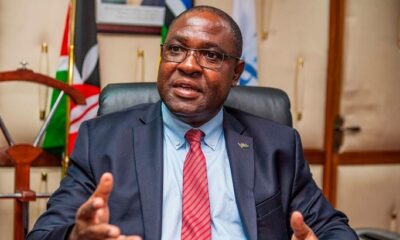Infrastructure
Bitter fight erupts over Nairobi-Mau Summit highway tender
Latest tendering battle threatens to further delay the much-awaited project.

A bitter row has erupted between two consortia of foreign companies that are battling for a lucrative tender to build the planned Nairobi-Nakuru-Mau Summit highway, in a development that now threatens to further delay the much-awaited project.
Mota-Engil, comprising African Infrastructure Investment Fund 3 Partnership, Egis Projects S.A, Mota-Engil-Engenharia E Construcao Africa, S.A and Orascom Construction, was last week designated by the Kenya National Highways Authority (KeNHA) as the “reserve bidder” for the project – with Rift Valley Connect (RVC), which comprises Vinci Highways, Meridian Infrastructure Africa Fund and Vinci Concessions, being named “preferred bidder”.
This infuriated Mota-Engil, which wrote a protest letter to KeNHA – accusing the roads agency of “cloaking the entire evaluation process in secrecy and intrigue to the extent that its fairness and impartiality are highly questionable and its outcomes irredeemably inconsistent with fair process to the bidders.”
Mota-Engil now wants KeNHA to designate it as the “preferred bidder” and RVC as the “reserve bidder”. According to KeNHA, the reserve bidder is a back-up plan just in case the former fails to undertake the project for any reason.
The consortium argues that RVC will pay much less taxes to the State over the 30-year period during which the Nairobi-Nakuru-Mau Summit road will be under concession.
Mota-Engil was the highest bidder at Sh194.9 billion, while RVC quoted Sh159.5 billion. The two were later found to have miscalculated their tax obligations to the Kenya Revenue Authority.
READ: Long wait for Sh180bn Nairobi-Mau Summit road tender award
The wrong formula saw RVC understating its income tax projections by more than Sh30 billion, while Mota-Engil overstated its tax obligations by more than Sh1.6 billion.
RVC told the PPP committee that it could only cover the tax deficiency by raising the cost of the project by a similar margin. This contravenes the PPP Act of 2013, which only allows for a reduction in bid price during tender negotiations.
KeNHA downplayed the tax variation concern, saying it was a “minor deficiency” that could not warrant the cancellation of the tendering process.
This prompted Treasury PS Kamau Thugge to write a letter asking the roads agency to reconsider its position on the matter.
“(Tax variation) is not a minor deficiency … the anomaly would place the project company in negative cash-flows for a significant period of the contract, impairing overall deliverability of the project,” Mr Thugge said in a letter to KeNHA director general Peter Mundinia on November 13.
In his response to Mr Thugge, Mr Mundinia said his team had noted the errors in tax computation for both bidders at the evaluation stage, but had decided to waive them.
“This decision was guided by the provisions of clause 29 (2) of the PPA Act which confers the authority to be guided with principles of transparency, free and fair competition and equal opportunity,” Mr Mundinia said in his reply dated November 23.
It waits to be seen how the battle plays out, but it is clear that the long wait for the 187-kilometre Nairobi-Nakuru-Mau Summit highway is just about to get a bit longer.












